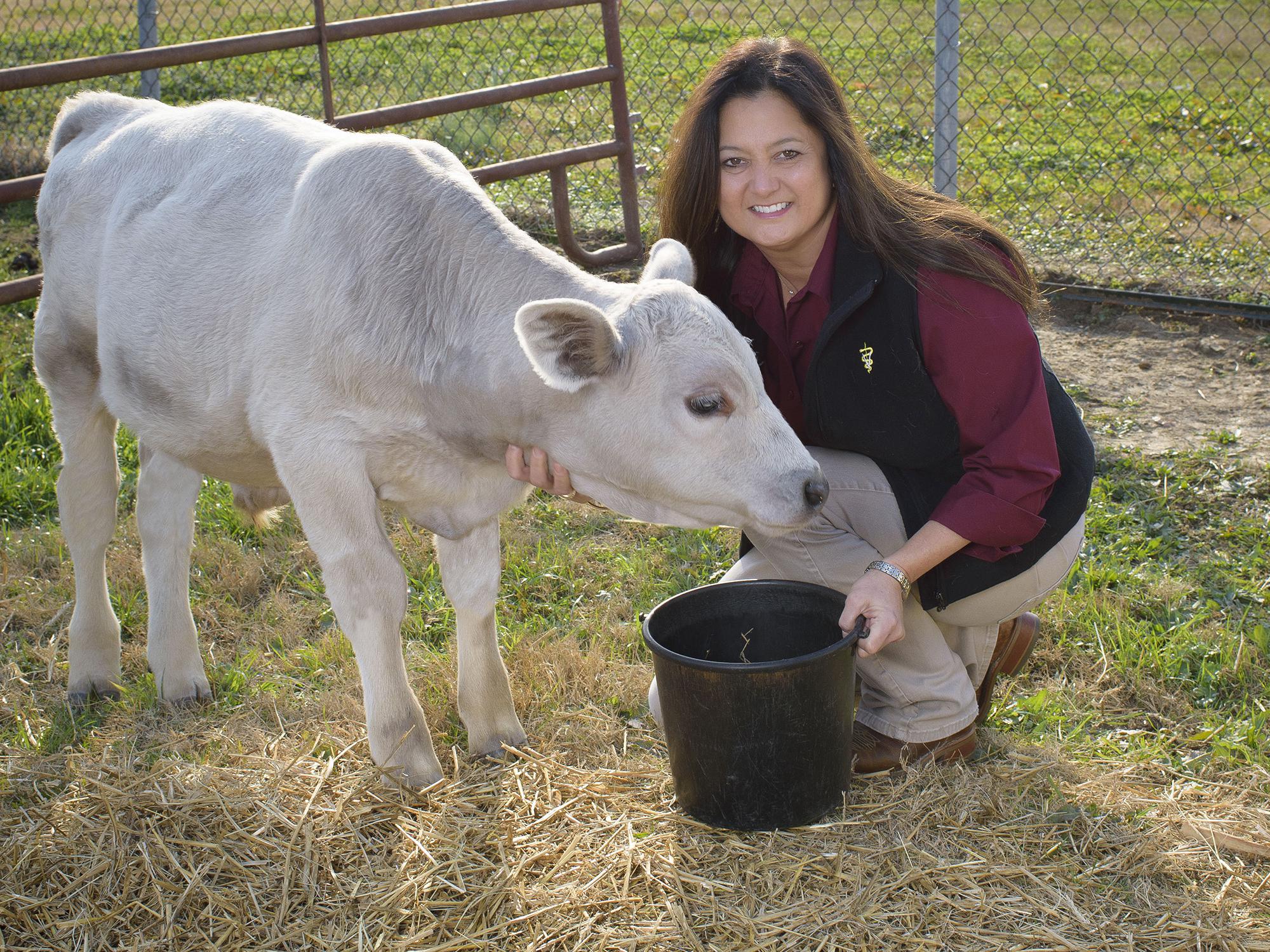Information Possibly Outdated
The information presented on this page was originally released on December 15, 2017. It may not be outdated, but please search our site for more current information. If you plan to quote or reference this information in a publication, please check with the Extension specialist or author before proceeding.
Extension veterinarian assists practitioners
STARKVILLE, Miss. -- The volunteer efforts of Dr. Carla Huston have helped veterinarians and animal rescuers in Mississippi save and treat hundreds of livestock and pets after disasters.
An associate professor with the Mississippi State University College of Veterinary Medicine, Huston is a member of the Mississippi Animal Response Team and oversees the Mississippi Animal Disaster Relief Fund. As the MSU Extension Service veterinarian, she works with veterinary practitioners and Extension agents across the state to keep animals healthy.
Huston also serves as the state’s Beef Quality Assurance program coordinator. Between her Extension work and her research and teaching in veterinary preventative medicine and epidemiology, Huston hasn’t had a dull moment in her 16 years at MSU.
“I know I love my job, but it’s hard to pinpoint what I do on a day-to-day basis,” Huston said. “My favorite part about what I do is getting out into the communities in Mississippi and training agents and private veterinarians to help prevent and treat diseases for the producers and pet owners they serve.”
Before coming to MSU in 2001, Huston earned three agricultural and veterinary degrees from The Ohio State University. She joined the MSU Extension Service in 2008. As Beef Quality Assurance coordinator, she makes sure livestock education programs help Mississippi beef producers meet industry standards.
She said a majority of her Extension work this year revolved around the U.S. Food and Drug Administration’s amended Veterinary Feed Directive regulations. The Veterinary Feed Directive program governs drugs that only licensed veterinarians can approve for use in feed for food-producing animals.
“I train veterinarians to deliver the training producers need to make sure Mississippi as a state is at or above international expectations for the safety and quality of beef products,” Huston said. “I spent a lot of time this year teaching veterinarians and producers how they can use antibiotics on livestock more judiciously.”
She also spends a lot of time reaching out to veterinary practices in communities affected by weather-related events and other emergencies as a member of the Mississippi Animal Response Team, the official coordination and response team for disasters involving animals and agriculture. Volunteer groups are deployed to affected communities in a supporting role.
“When you have natural disasters such as Hurricane Katrina in 2005 or the tornadoes that destroyed portions of Tupelo and Louisville in 2014, a lot of veterinary clinics and animal rescues take in an overflow of animals,” Huston said. “The goal of the Mississippi Animal Response Team is not for the teams themselves to save animals’ lives, but to give rescuers and veterinarians what they need so they can.”
Established in 2006, the Mississippi Animal Disaster Relief fund has distributed about $60,000 in assistance to clinics, rescue shelters and livestock owners for boarding and medical costs. Funds have also been used to replace show supplies for 4-H’ers, portable kennels and feed.
Immediately following Katrina, the fund distributed more than $371,000, assisting 46 veterinarians and their clients. Huston estimates the funds have been used to assist between 700 and 800 livestock animals and pets.
“These funds and teams ensure community support and business continuity. They are also used to reimburse veterinarians for their services to animal owners after disasters,” she said. “When there is a disaster, we reach out to local Extension agents, veterinarians and Red Cross offices to notify them of the Mississippi Animal Disaster Relief fund. The fund runs completely from corporate and private donations from people who want to help.”
One recent beneficiary of the fund was Paws Rescue in Vicksburg, a small volunteer-based foster organization that took on an overflow of more than 40 cats and dogs after flooding threatened the city’s animal control offices in August 2016.
“We operate from our homes and have limited funds, so the financial impact of bringing in so many animals at a time was overwhelming,” said shelter operator Leigh Conerly. “We looked for grants that could help us and found Carla. She walked us through the process of applying for funding, and we soon received reimbursement for boarding and treatment expenses.
She was wonderful to work with.”
Make a donation to the Mississippi Animal Disaster Relief fund by visiting https://goo.gl/RtCWK7.




